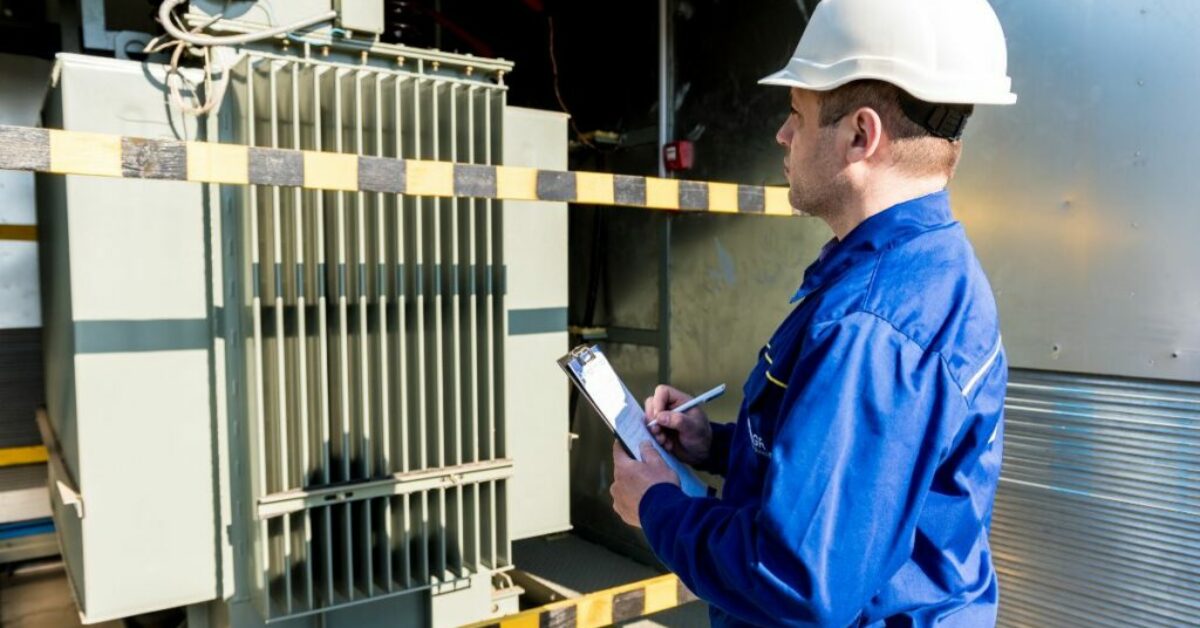How To Become An Electrical Inspector?
If you are interested in a career as an Electrical Inspector, it’s crucial to understand the steps and skills necessary for achieving this goal. In this article, we will explore the requirements, responsibilities, and benefits of working as an Electrical Inspector.
Steps To Becoming An Electrical Inspector
Are you interested in becoming an Electrical Inspector? If so, there are a few essential steps you need to follow to achieve your goal.
- Obtain Proper Education and Training
The first step to becoming an Electrical Inspector is to obtain proper education and training. This typically involves enrolling in an accredited program in electrical engineering or a related field. During your studies, you’ll gain a comprehensive understanding of how electrical systems work, including installation, maintenance, repair, and safety measures.
It’s important to note that the specific education and training requirements may vary depending on your location. Be sure to research the requirements in your area to ensure you’re on the right track. - Gain Practical Experience
Once you’ve completed your education, you’ll need to gain practical experience in the field. This usually involves an apprenticeship under a licensed Electrical Inspector. During this time, you’ll gain valuable knowledge of different electrical systems and their components, as well as hands-on experience with various tools and testing equipment.
It’s important to take advantage of this time to ask questions and learn as much as you can from your mentor. This practical experience will be invaluable as you move forward in your career as an Electrical Inspector. - Pass a Licensing Exam
After completing your education and apprenticeship, you’ll need to pass a licensing exam to become a certified Electrical Inspector. Depending on the state or jurisdiction you reside in, there may be additional requirements, such as continuing education credits to maintain your license.
It’s important to prepare for the licensing exam by studying and reviewing the materials covered in your education and apprenticeship. Many organizations offer study materials and practice exams to help you prepare for the licensing exam.
Once you’ve passed the licensing exam, you’ll be ready to start your career as an Electrical Inspector. This is a rewarding career that requires a combination of education, practical experience, and a commitment to safety and quality.
Skills Needed For Becoming An Electrical Inspector
Becoming an Electrical Inspector requires a combination of education, licensing, and specific skills that are essential to excel in this career. As an Electrical Inspector, you’ll be responsible for examining electrical systems and ensuring that they meet safety standards and comply with electrical codes.
Excellent communication skills are a must-have for this job. You’ll be working with different clients, contractors, and laborers on a daily basis. You’ll need to be able to communicate effectively, both verbally and in writing, to convey technical information to people with varying levels of knowledge and experience.
In addition to communication skills, you must have a keen eye for detail. You’ll be responsible for examining electrical systems and identifying potential hazards or violations of electrical codes. You’ll need to be able to spot even the smallest issues and address them before they become bigger problems.
Problem-solving, critical thinking, and decision-making abilities are also essential skills for an Electrical Inspector. You’ll need to be able to analyze complex systems, interpret technical data and codes, and make correct judgments and decisions to ensure that electrical systems are safe and up to code. You’ll need to be able to think on your feet and come up with creative solutions to unexpected problems.
As an Electrical Inspector, you’ll also need to be familiar with the latest technologies and trends in the industry. You’ll need to be able to keep up with the latest developments in electrical systems and codes to ensure that you’re providing the best service possible to your clients.
In summary, becoming an Electrical Inspector requires a unique combination of technical expertise, communication skills, attention to detail, problem-solving abilities, and familiarity with the latest industry trends. If you possess these skills and have a passion for ensuring the safety of electrical systems, then a career as an Electrical Inspector may be the perfect fit for you!
What is An Electrical Inspector?
An Electrical Inspector is a professional who ensures that electrical systems and installations meet safety and performance standards. They are responsible for inspecting electrical systems in new and existing buildings to ensure that they comply with national, state, and local electrical codes. Electrical Inspectors also issue permits and certificates of occupancy for new construction, additions, and alterations, and make recommendations for electrical repairs and upgrades.
Electrical Inspectors work in a variety of settings, including private consulting firms, government agencies, and construction companies. They may work on small residential projects or large-scale commercial and industrial projects, and they may be responsible for inspecting everything from wiring and electrical panels to lighting and HVAC systems.
One of the most important aspects of an Electrical Inspector’s job is ensuring that electrical systems are safe. They check for potential hazards such as overloaded circuits, faulty wiring, and outdated equipment. They also ensure that all components of the electrical system are properly grounded and that there are no exposed wires or other hazards that could cause injury or damage to property.
Another important aspect of an Electrical Inspector’s job is ensuring that electrical systems are efficient and meet performance standards. They check for proper voltage levels, ensure that circuits are properly balanced, and check that all electrical components are functioning properly. They may also recommend upgrades or repairs to improve the efficiency of the system.
Electrical Inspectors also play a critical role in the construction process. They work closely with architects, engineers, and contractors to ensure that electrical systems are installed properly and meet all applicable codes and regulations. They may review plans and specifications, conduct inspections during construction, and issue permits and certificates of occupancy.
In addition to their technical expertise, Electrical Inspectors must also have strong communication and interpersonal skills. They must be able to explain complex technical information to a variety of audiences, including building owners, contractors, and other stakeholders. They must also be able to work collaboratively with other professionals to ensure that projects are completed on time and within budget.
Overall, the role of an Electrical Inspector is critical to ensuring the safety and performance of electrical systems in buildings of all types. Their work helps to protect people and property from electrical hazards, and ensures that electrical systems are efficient and reliable. If you are considering a career in the electrical industry, becoming an Electrical Inspector can be a rewarding and challenging career path.
Benefits of Becoming an Electrical Inspector
Aside from job stability and growth potential, working as an Electrical Inspector also offers a competitive salary and benefits package. According to the Bureau of Labor Statistics, the median annual salary for Electrical Inspectors is $63,660. This salary can vary depending on your level of experience, location, and the industry you work in. Additionally, many employers offer benefits such as health insurance, retirement plans, and paid time off.
As an Electrical Inspector, you’ll also have the opportunity to work with a variety of clients and industries. You may work with residential, commercial, or industrial clients, each with their own unique electrical systems and needs. This variety can keep your work interesting and challenging, as you’ll need to stay up-to-date with the latest codes and regulations for each industry.
Furthermore, working as an Electrical Inspector can provide a sense of fulfillment and pride in your work. You’ll be responsible for ensuring that electrical systems are safe and up to code, which can have a significant impact on people’s lives and well-being. Your work can also contribute to the overall safety and sustainability of buildings and communities.
Working as an Electrical Inspector offers many benefits, including job stability, growth potential, a competitive salary and benefits package, the opportunity to work with a variety of clients and industries, and a sense of fulfillment in contributing to public safety and well-being. If you have a passion for problem-solving, critical thinking, and technical knowledge, a career as an Electrical Inspector may be the perfect fit for you.
Overall, becoming an Electrical Inspector requires a combination of education, training, and practical experience. However, with dedication and hard work, you can pursue a fulfilling and lucrative career in this field. With the critical role Electrical Inspectors play in ensuring the safety and compliance of electrical systems, they are essential to the construction and maintenance of all types of buildings and structures.




